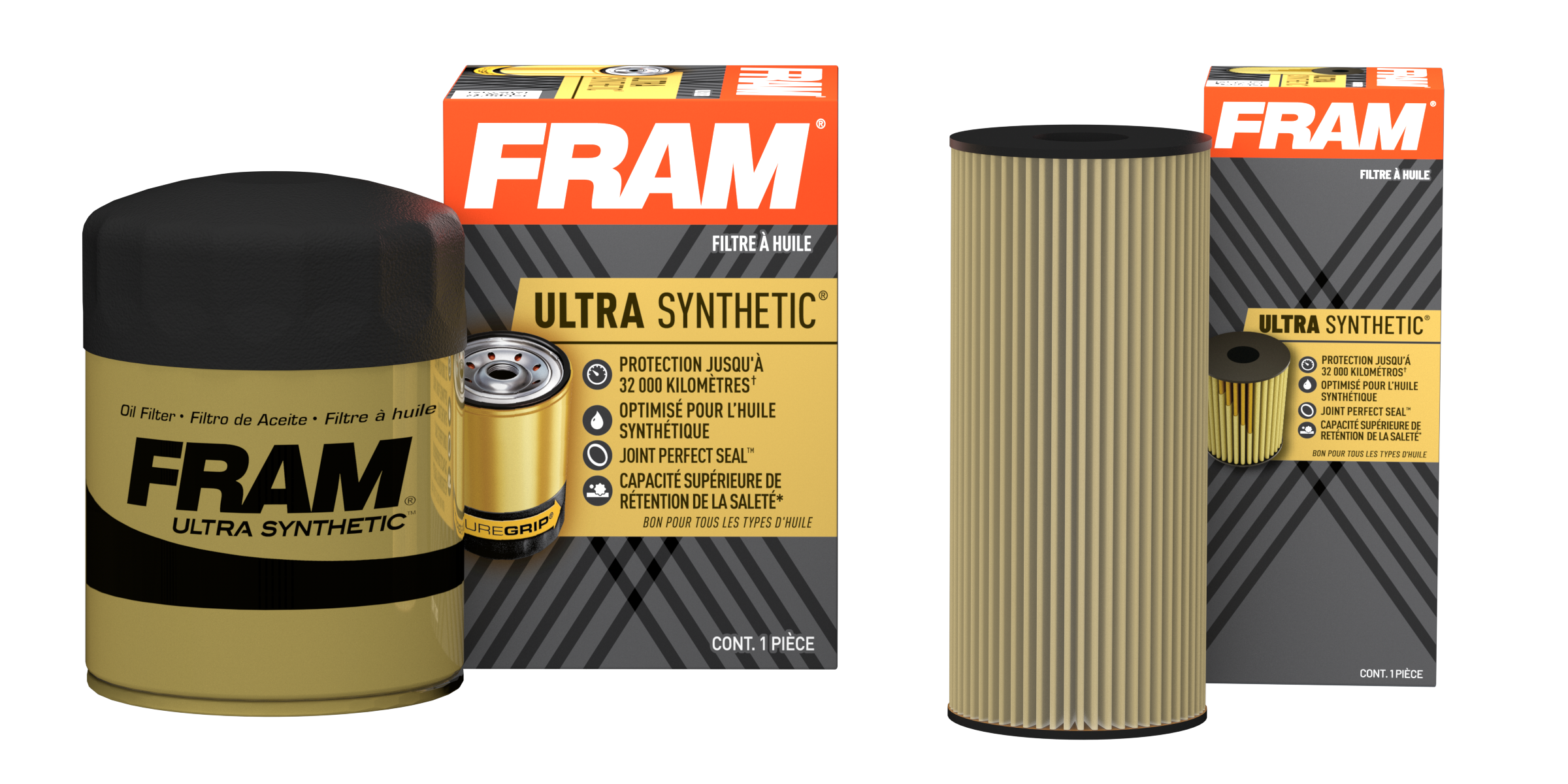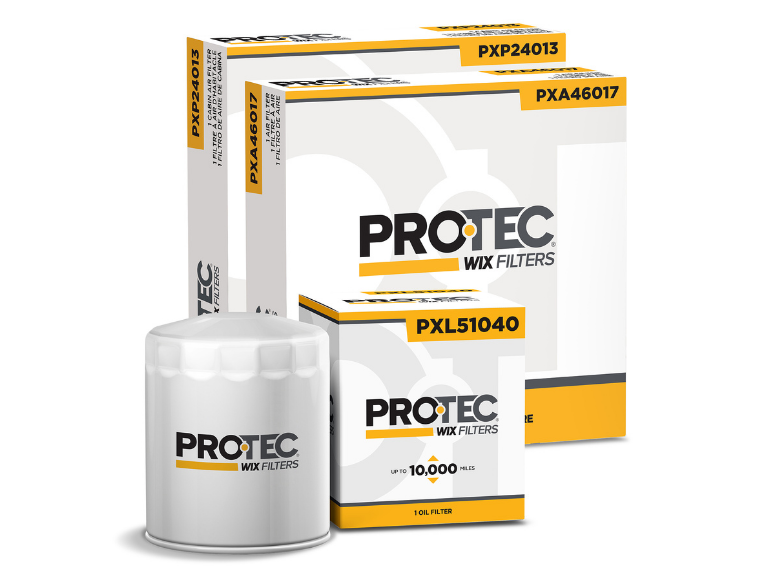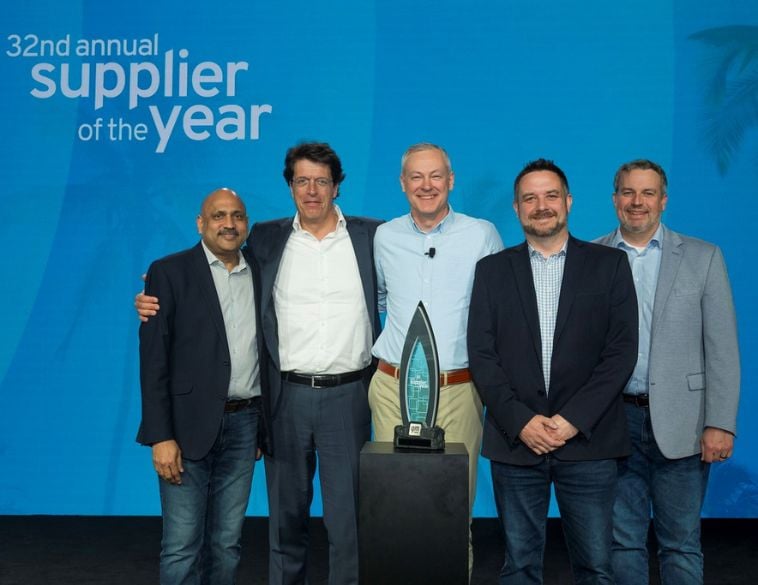There are still times when the oil filter installed during an oil change does not meet the recommended lubricant specifications for the vehicle.
It is noted by Bernard Lefebvre, now with the Altrom Group, a distributor specializing in European parts. “There’s still a lot of education to be done on this,” he says. “There needs to be a link between the quality of the lubricant and the replacement filter. Shops need to stop deciding for the customer and offer the cheaper product. In some cases, the entry-level part is not going to do the job, especially for models with longer intervals between lube changes. The filter is going to clog and particles are going to circulate in the engine.”
The same advice is given by Wilson Almeida, trainer at the Vast Academy. “The aftermarket offers good solutions. We’re talking about filters produced in the same factories as the original parts. You have to follow the quality recommended by the manufacturer. The days of one part meeting the needs of all vehicles are over. Filters have a lifespan and with oil changes every 25,000 kilometers, you can’t skimp on quality.”
Accessible information

As Donald Chilton, Director of Product Management at Wix, explains, his company shares a lot of information with distributors and shops to update them on the various filter applications they are developing.
This supplier offers three categories of products: PRO-TEC (normal use), WIX (severe use) and WIX XL (extreme use) related to the uses and specifications of the manufacturers.
The PRO-TEC line has been updated and will be reintroduced to the Canadian market by the end of 2022.
“When replacing a filter, there are two factors to consider. The first is obviously mileage, as specified by the manufacturer, and the second is time. A car that doesn’t get a lot of mileage will accumulate moisture that can contaminate the lubricant,” Chilton says.
“In other cases, motorists will not keep up with oil change times, and that’s where the choice of a poor quality filter will be particularly damaging. The inside of the filter can degrade and create debris.”
However, this specialist sees a trend towards better quality replacement filters. “We have to listen to consumers who want to keep their vehicles longer without necessarily wanting to constantly go to the shop. They also increasingly understand that their vehicle is a high-tech part that requires quality parts.”
Jeff Dent, Product Manager for FRAM, also mentions that his company offers three grades of replacement filters. These include Extra Guard, Tough Guard and Ultra filters specifically for synthetic lubricants.
“The products have adapted over the years and we are now seeing a shift to synthetic lubricants,” he says. “Nearly half of the vehicles on our roads run on synthetic and nearly 75% run on this oil or a semi-synthetic blend. This requires garages to pay special attention to not only oil change intervals, but also the time periods when such replacement is recommended.”

Think synthetic
He points out that in most cases it is possible to offer the customer the option of switching from mineral oil to a semi-synthetic or synthetic lubricant for better engine protection.
Mentioning that a synthetic lubricant change is more expensive, Mr. Dent considers it normal for the shop to install an adapted filter of superior quality. Some vehicles, especially in Europe, will require filter cartridges, which are easier to recycle. “The key is to marry the right filter with the right lubricant,” he summarizes.
With vehicles averaging fewer miles over the past two years, Maxim Manzerolle, NAPA’s under-the-hood product specialist, reiterates suppliers’ instructions. “With time and our conditions, the lubricant will degrade. Time is an important factor to keep in mind.”
NAPA also introduces three categories of filters, the ProSelect, the Gold, which is equivalent to the original part fitted on the vehicle, and the Platinum, for heavy-duty use, such as for cab cars. Manzerolle says that while there is still demand for entry-level filters, the trend is really toward OE-equivalent or higher quality products.
He explains that NAPA’s computerized catalog makes it easier for the technician to find the filter that matches the specifications of the vehicle he or she has in hand.






 BROSSARD
BROSSARD Full time
Full time


